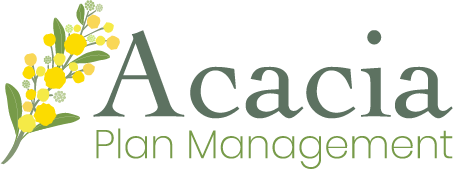Just in time for the commencement of the new financial year, the NDIA has released the 2022-23 Pricing Arrangement and Price Limits (Price Guide). In this article, we touch on the highlights and notable exceptions.
Support work prices increased by 9%
From 1 July 2022, price limits for all NDIS supports delivered by disability support workers will increase by 9 per cent, including a 2 per cent temporary loading in 2022-23. All current NDIS plan budgets will be automatically increased to account for these price limit changes.
Prices dependent on the Disability Support Worker Cost Model have been increased by 9%. This includes:
- Assistance with self-care activities and establishment fees
- Self and plan management capacity building
- Assistance in Supported Independent Living (SIL)
- Assistance to access community, social and recreational activities, including group supports and establishment fees
- Supports in employment
- Psychosocial recovery coaching
- Tenancy support
- Life transition planning
- Individual skills development
- Transition through school and to further education
- Training for carers/parents
This considerable increase is intended to meet the major cost impacts on providers, including changes to the Social, Community, Home Care, and Disability Services Award, minimum wage and superannuation guarantee increases and costs associated with NDIS registration and the pandemic. Forming the basis of this price increase are:
- 1.7% increase to base prices
- 2% temporary loading, reviewed annually
- 4.6% increase in award minimum wages
- 0.5% increase to superannuation guarantee charge
No increase for therapy, support coordination and plan management fees
Therapists, support coordinators and plan managers won’t see an increase in pricing for the second year running. The only exception to this is Level 1: Support Connection, with only 0.5% of Support Coordination hours are funded at this level.
No more level 3 high intensity supports
This year’s Price Guide includes support work prices for only 2 levels of complexity instead of the previous 3. The updated guide includes only a standard price and a single “high intensity” price, which is defined as support provided to a person:
- For whom frequent (at least 1 instance per shift) assistance is required to manage challenging behaviours that require intensive positive behaviour support; and/or
- Who requires assistance from a disability support worker who has one or more of the high intensity support skills specified in the NDIS Commission’s NDIS Practice Standards: skills descriptors.
The NDIA has explained this as “simplifying” the arrangements, which essentially means removing the highest pricing tier (level 3) and setting prices based on the previous level 2 rates.
Short notice cancellations now 7 days
In a significant update, the definition of “short notice” has been extended from two days to seven days, working in favour of providers. Previously set at two days for shorter supports or five days for others, the definition is now set as a situation where a person:
- Does not show up for a scheduled support within a reasonable time, or is not present at the agreed place and within a reasonable time when the provider is travelling to deliver the support; or
- Has given less than seven (7) clear days’ notice for a support.
Changes to provider travel rules
Providers of core supports are now able to bill for travel from the participant back to the usual place of work, provided that the participant consents and the worker is paid for this trip or the worker is a sole trader. The maximum time billable per trip is 30 minutes or 60 minutes return or 60 minutes for people in areas defined as remote or very remote. This brings core supports in line with capacity building supports.
Restructured line items
The Improved Daily Living support category has been updated, with new line items created for each allied health profession. This support category includes assessment supports, training supports, strategy development supports, and therapeutic (including Early Childhood Intervention) supports to assist the development of, or to increase, a participant’s skills and their capacity for independence and community participation.
There are no longer line items for Capacity Building in plan management under either the plan management or support coordination support categories. This support may be accessed from core supports, using the line-item Capacity Building and Training in Self-Management and Plan Management.
New Bereavement Addendum
The new NDIS Bereavement Addendum lists support items that providers can claim after an NDIS participant has died. It provides a special line item for plan managers to claim for the continued processing of payments for up to 90 days after a person’s death, as well as instructions for how SIL providers can claim a support for up to 4 weeks.
TTP falls to 3%
The Temporary Transition Payment (TTP) is approaching its final years, falling to 3% for 2022-23. It will then fall to 1.5% on 1 July 2023 and 0% from 1 July 2024.
You can access the full NDIS 2022/23 Price Guide documents here.
Updates to 2022-23 pricing arrangements
Early intervention supports for early childhood
Any type of professional who was delivering Early Intervention Supports for Early Childhood in 2021-22 can deliver those supports in 2022-23. If the support is not delivered by an appropriately qualified psychologist, physiotherapist, counsellor or exercise physiologist, you should use the Other Professional support item to claim for the support.
Therapy supports
Any type of professional who was delivering therapeutic supports in 2021-22 can still deliver these supports in 2022-23. Professionals who meet one of the definitions of a type of therapist set out in the Pricing Arrangements and Price Limits should use the support item for their professions. All other claims should be made using the Other Professional Support item.
Any therapy supports for children under 7 must be claimed using Early Intervention Supports for Early Childhood.
Automatic indexing of plans
We automatically increased remaining funds in participant plans to cover the 2022-23 pricing changes on Monday 11 July. Providers can now update any service bookings. Please note, price limit changes and indexation increases will not be automatically applied to existing service bookings. Providers need to update service bookings after agreeing to price changes with participants.
Providers can only increase the prices they charge a participant for NDIS supports with the prior agreement of the participant.





